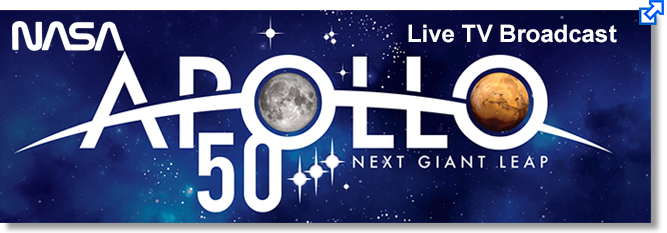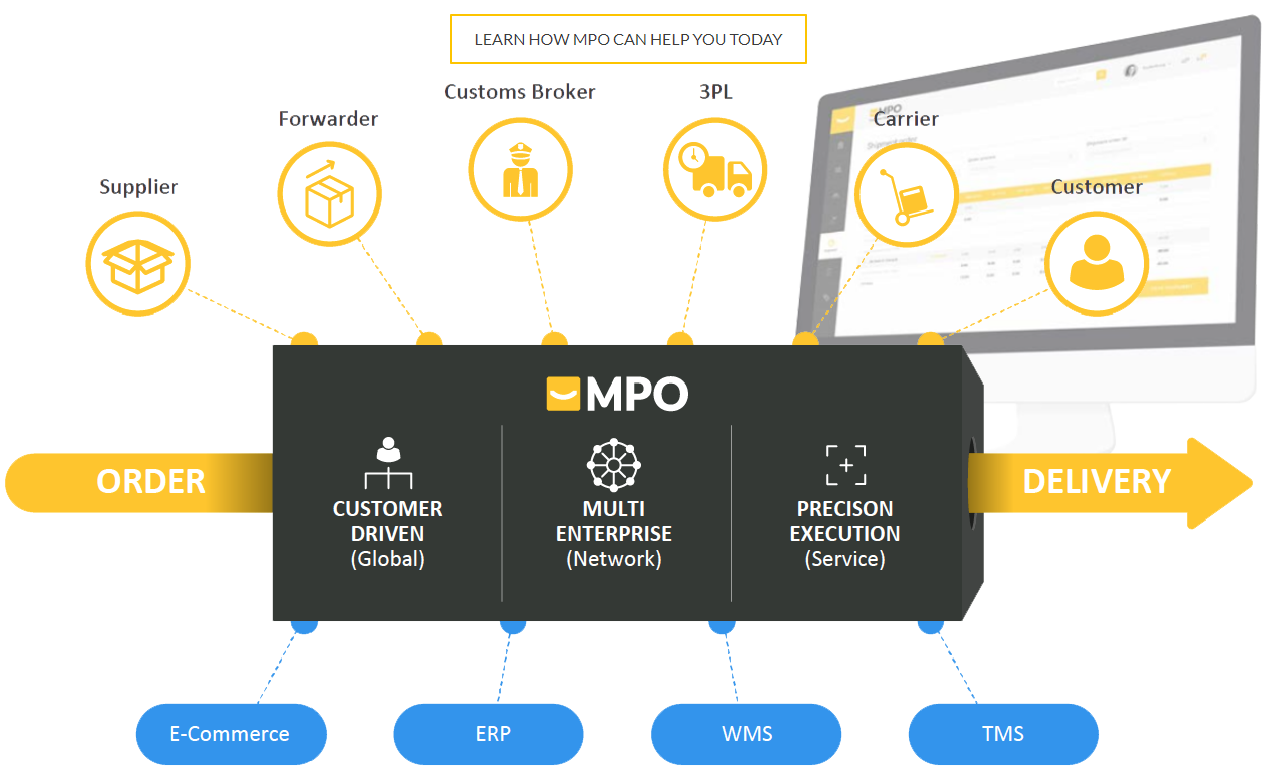3 Lessons Supply Chain Professionals Can Learn From The National Aeronautics & Space Administration

The National Aeronautics and Space Administration, NASA, celebrates the 50th anniversary of the July 20, 1969, Apollo 11 moon landing, and as we reflect on this exceptional feat, there are clearly significant aspects such as resilience, agile strategy, and innovation that apply to today's supply chain professionals.
Resilience, Agile Strategy, and Innovation
Sunday, July 20, 1969, went down as one of the most momentous days in history when the first humans successfully set foot on the moon.
Hundreds of millions of awed and enthused people tuned in for the Apollo 11 milestone – the pinnacle of a rigorous program that would push the limits of spaceflight.
Neil Armstrong’s famous line: “One small step for (a) man, one giant leap for mankind,” still resonates today as one of America’s proudest achievements.
The daunting task was not easy but required resilience, agile strategy, and innovation – a cornerstone of NASA’s approach to any challenge.
Today, Friday, July 19, at 1 pm: NASA Celebrates the 50th Anniversary of Historic Apollo 11 Moon Landing with a Live TV Broadcast
As we celebrate the 50th Anniversary of this exceptional feat, here are a few significant aspects of their achievement that supply chain professionals can apply to bolster their businesses;
1. Let the Sense of Urgency Drive You
Before the U.S. finally set foot on the moon, the Soviet Union remained perpetually ahead in the space race.
While this was certainly frustrating and contributed to a loss in confidence, this fact also incited a necessary sense of urgency.
President Kennedy made a bold move by assigning a seemingly impossible timeline and backed the goal with significant funds (about 2.5% of the country’s GDP). The push turned out to be a fortuitous one.
The concept of the archrival is a widely familiar one. The big-box company or the industry giant that always seems to be charging ten paces ahead of the competition, wielding the most state-of-the-art technology and with incredible resources at their disposal.
And yet, many of these so-called “disrupters” were once the underdogs. New businesses whose experimentations were not yet taken seriously nor seen as innovations when they first surfaced, but that came to dominate the market through persistent play.
The spirit of play and innovation belong to everyone, though not everyone takes advantage of them. Yes, the market feels inundated and demanding, but that is precisely what should motivate you to ask the toughest question: What value does (or can) your business bring that others do not? No one can be everything to the market, so what is your brand’s niche?
Once you have your answer, take immediate steps to create new opportunities for differentiation and customer experience.
2. Get Comfortable With Failing
Jeff Tweedy, singer-songwriter and Wilco frontman, wrote that most geniuses are not necessarily geniuses, they’re just more comfortable with failing. The Apollo mission found success not on its first attempt, but after a series of trials and errors. They worked in a kind of exploratory environment in which every launch proved an invaluable and enriching breakthrough in the learning process.
Market leaders are usually pioneering. They tend to be aggressive risk-takers who invest in their visions, employ diverse teams, and foster a flexible culture that encourages experimentation. Over-commitment to old practices and legacy systems and frameworks fosters a static environment that is less likely to yield new ideas or support creativity and dynamism.
Strategy, techniques, and emergent technology should be continuously and critically examined and evaluated. One advantage is that NASA already knew where it was headed: to the moon.
Truly successful supply chain practitioners align their business goals with the bigger picture. Where is the supply chain headed, and where and how well do you fit into that future?
3. Innovate How You Apply Technology
As we mentioned, NASA has always been known and recognized for its innovation. Their advancements in technologies have had such wide and varied impacts to include the healthcare and transportation industries, as well as consumer, home, and recreation products. They’ve also made tremendous strides toward improving environmental resources, as well as computer technology.
But above their research and development initiatives is the innovative way in which they apply existing and emerging technology. For instance, today, rather than send astronauts certain supplies via rockets, NASA furnished the International Space Station with a 3D printer. This way, they can send blocks of raw materials, so astronauts quickly create the various spare parts needed on-site.
Invention isn’t expressly about new technology, it isn’t just about the latest, greatest gadget on the market.
Innovation also resides in how you apply those exciting new tools. Rather than strictly focusing on how you can tweak or patch-up the systems you already have in place, imagine what new processes or strategies you can devise given the technologies out there.
Are you running multiple processes that can be consolidated? Are there redundancies or areas of the supply chain you can cut out altogether or submit to a fresh and novel approach?
The point is not to reinvent the wheel, it’s to try and be the first to realize you no longer need one.
About the Author
Martin Verwijmeren is co-founder and Chief Executive Officer of MP Objects, a global, cloud platform that is transforming the way businesses handle multi-enterprise digital order management and supply chain orchestration with offices in Boston, Rotterdam, Tokyo, and Hyderabad. He was previously Vice President of IT for CEVA Logistics. He holds a Ph.D. in Distributed Object Technology for Integral Inventory Management from the Eindhoven University of Technology. Contact Martin Verwijmeren at [email protected].
Global Supply Chain Orchestration Software
Smart Cloud Platform for Supply Chain Orchestration
MPO integrates planning and execution, resulting in supply chains that create competitive advantage. MPO incorporates precision costing across partners and activities to ensure optimal operations and profit.
Related White Paper
Modern Control Towers: Choosing the Right One for Your Digital Supply Chain
In this white paper, we chart the evolution of the control tower as a means to embrace and extract value from all this complexity and discuss how to select and implement the right control tower for your supply chain business. Download Now!
More Resources from MP Objects
Article Topics
MPO News & Resources
TMS+ Go Beyond Transport to Optimize Cost, Service, & Resiliency Multi-Party Orchestration Platform When It Comes to Digital Transformation You May Not Be Doing What You Think How Chief Operating Officers are Achieving Results with Supply Chain Software SPARK Matrix Transportation Management System Software Analyst Report Top Trends Driving Change and Technology Strategy Within Logistics & Transportation Management 5 Key Steps for Optimizing your Last Mile Delivery More MPOLatest in Supply Chain
Microsoft Unveils New AI Innovations For Warehouses Let’s Spend Five Minutes Talking About ... Malaysia Baltimore Bridge Collapse: Impact on Freight Navigating TIm Cook Says Apple Plans to Increase Investments in Vietnam Amazon Logistics’ Growth Shakes Up Shipping Industry in 2023 Spotlight Startup: Cart.com is Reimagining Logistics Walmart and Swisslog Expand Partnership with New Texas Facility More Supply Chain

















